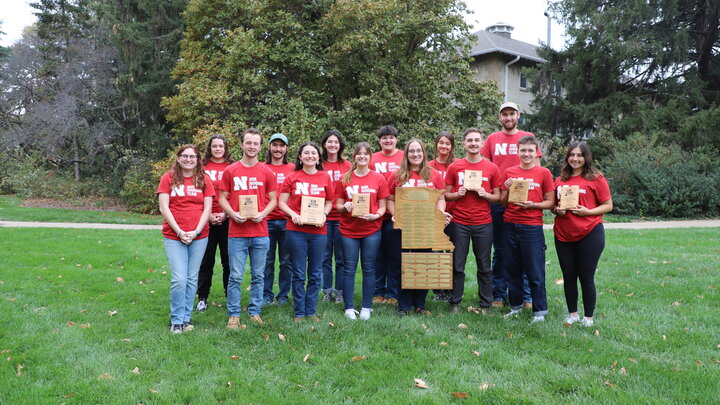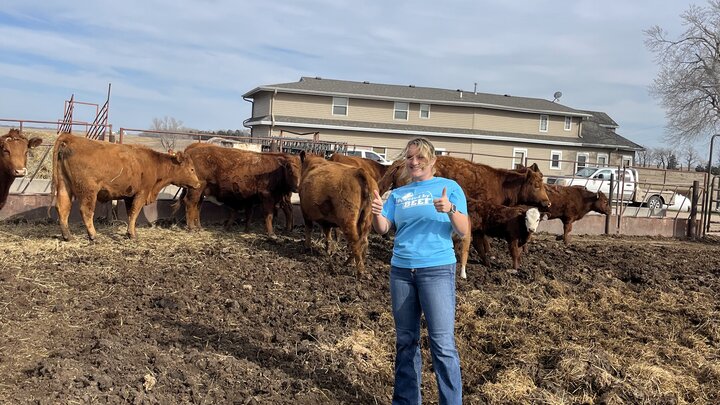Teaching the students of Nebraska to think critically is one of the most valuable skills that will advance the state forward.
Implementing critical thinking skills through inquiry-based learning puts schooling into the hands of the students, which is a successful teaching tool to advance student knowledge, said Nathan Conner, associate professor in the Department of Agricultural Leadership, Education, and Communication at the University of Nebraska–Lincoln.
Conner said students who explore topics and create personal connections for themselves have a positive outlook on learning and incorporate these skills into a career in the future. These skills are important for understanding human relations, adapting new applications, and overall becoming more knowledgeable.
Equally important, employers across the state expect their workforce to examine situations and make justified decisions. Inquiry-based learning teaches life skills that strengthen the ability to improvise in time-sensitive situations.
Inquiry-Based Learning Techniques
Conner said inquiry-based learning approach highlights the student’s roles in the learning process by motivating him or her to actively explore and discuss ideas, rather than memorizing facts and passively listening to lectures.
“Inquiry-based learning is a teaching method that can be very hands-on and allows for a thought process that follows scientific inquiry,” Conner said. “The scientific process allows students to form questions, develop a hypothesis, collect data, analyze data, and make a decision from it.”
This method follows a systematic approach to finding a solution and is used to conduct experiments and unknowingly solve everyday problems in people’s lives, according to Conner.
Students engaged in inquiry-based learning in the classroom are more likely to apply these skills in other areas of their life at home and the community.
“Inquiry-based learning teaches students to use the scientific method on the fly,” Conner said. “These decisions could be consumer-based decisions, work-based decisions, or even voting decisions. Ultimately, we encourage students to support their thoughts with critical analysis.”
Much like the use in various industries, inquiry-based learning teaching methods are used in a variety of subjects with high school or college. For example, Conner said an agricultural classroom had students work in the greenhouse and form questions to develop experiments on different conditions that impacted plant health.
Inquiry-based learning is important because students discover information for themselves, figure out problems, and decide they can fix it. Conner said this sense of ownership will carry into their adult life when they have to figure out problems for themselves in a career or personal endeavor.
Summer Workshops for Teachers
Education is habitually evolving, and teachers should continually grow alongside the technological advancements.
Conner hosts professional development training to help high school science and agriculture teachers learn how to teach inquiry-based learning. The workshops encourage educators to take what they learn during summer training to their classrooms in schools around the state.
While other workshops of its kind are only a few days or weeks long, Conner’s workshops are a full calendar year.
Conner said teachers come together for one summer and complete the workshop face-to-face. Meetings are then held via a video conferencing platform several times throughout the school year. Once teachers conclude the virtual meetings, they return the following summer to continue and complete the workshop.
The benefit of the workshop is to master teaching techniques, learn new content for the classroom, and form a community of educators that can encourage one another, Conner said.
The teachers that utilize Conner’s professional development resources will add value to their classrooms and ultimately excel student learning experiences and improve the rural communities around Nebraska.
Online Opportunities Make Global Impacts
Access to professional development opportunities can be difficult for rural high school teachers in Nebraska, Conner said. With the use of technology, online conferencing platforms can provide teachers the opportunity to participate from many miles away.
The future of education is growing wildly dependent of technology as an aid. The video conferencing calls that teachers participate in during the summer training workshops serve a dual purpose. First, the workshops allow educators to grow their professional skills. Second, educators can become proficient in using an online web conferencing software.
As technology is incorporated into school cultures, students will likely incorporate more online platforms in their learning. The potential of online courses opens up doors for students to connect with people outside of their rural communities and become cultured.
“It is important for our high school youth all over the state of Nebraska to become aware that they are going to be global citizens,” Conner said. “They are going to have the opportunity to interact with people from all over the world and they may even end up working with countries and companies located out of the United States.”
The exposure to people around the globe and different cultures will change student perspectives. The benefit of inquiry-based and online learning is developing more well-rounded individuals that are capable of making informed decisions with consideration to the world around them.
For those interested in participating in the summer workshop program please Dr. Conner at nconner2@unl.edu.




